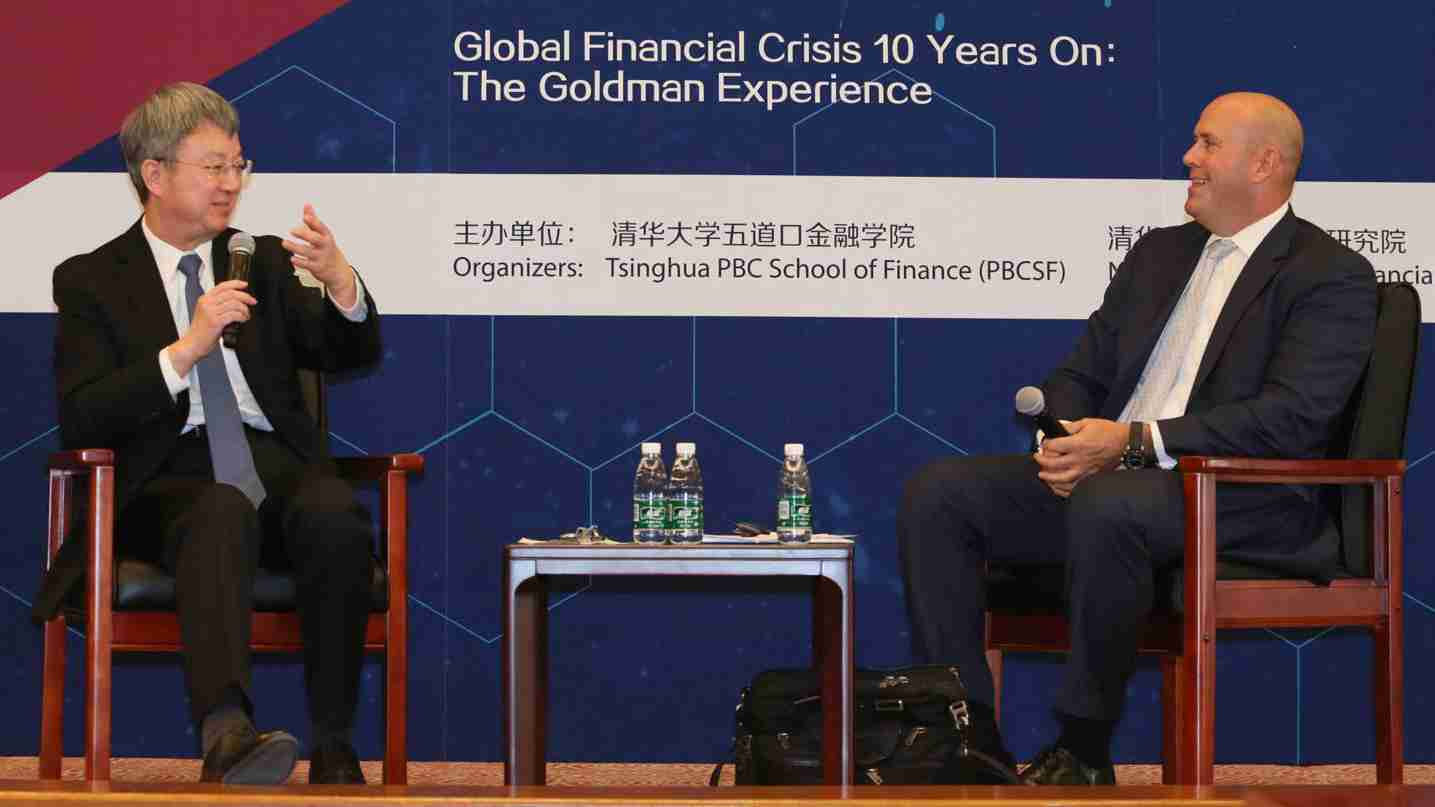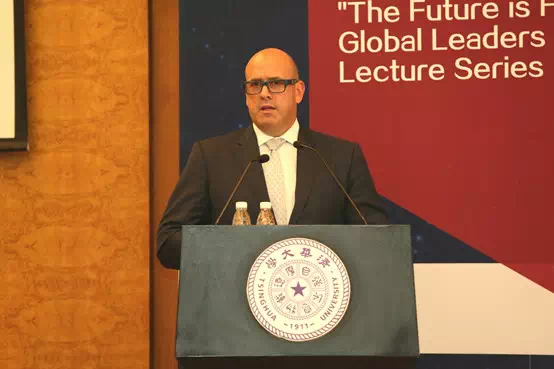
Business
15:47, 10-Oct-2018
Lessons from the financial crisis: Global cooperation plays a key role
Updated
15:22, 13-Oct-2018
By CGTN's Yang Jing

Ten years ago, global cooperation prevented the world economy from a complete collapse after the financial crisis – a lesson that should not be forgotten, according to Harvey Schwartz, who recently retired as president and co-COO of Goldman Sachs.
"We all need allies to support us during times of stress," said Schwartz, who was CFO of Goldman Sachs during the 2008 financial crisis, during a discussion held by the PBC School of Finance (PBCSF), Tsinghua University on Monday.
Referring to the current tensions between the US and China, Schwartz said both sides have changed significantly in recent decades, entering a new phase of bilateral relations.
The Trump administration's policies are "very transactional in nature," representing a sudden shift not only for China but for the whole world, he said.
Both the US and China have benefited greatly from bilateral trade for many decades, and it is crucial that the two sides continue to work towards maintaining that relationship, according to Schwartz.

Harvey Schwartz speaks at PBC School of Finance (PBCSF), Tsinghua University in Beijing on Oct.10, 2018. /Photo from PBCSF
Harvey Schwartz speaks at PBC School of Finance (PBCSF), Tsinghua University in Beijing on Oct.10, 2018. /Photo from PBCSF
Despite the escalating tensions between the two countries, Schwartz remains optimistic about the future.
"I do fundamentally believe that's in the best interest for the United States, for China and for the rest of the world, that the two largest economies figure out the platform to work together."
Compared with China-US tensions, the former banker is more concerned about a global shift in policy towards interest rates.
Zhu Min, Chair of National Institute of Financial Research (NIFR) at Tsinghua University, agreed with Schwartz and said that interest rate hikes and policymakers moving away from quantitative easing (QE) in Europe and Japan may have a significant impact on global finance.
Schwartz expressed concerns about rising interest rates, noting that rates had been in decline for the past 30 years before hitting negative territory, but were now going up for the first time in decades.
Looking back to the financial crisis ten years ago, Schwartz said the crisis was not caused by subprime mortgage lending or the collapse of Lehman Brothers, but came from factors built up gradually over many years before.
The crisis was in fact caused by high degree of leverage around the world, with governments forced to step in with tools including QE when private capital retreated, he said.
Schwartz spoke highly of how QE was implemented, but also voiced his concerns towards what happens when the world moves away from this economic experiment, with the potential effects still unknown.

SITEMAP
Copyright © 2018 CGTN. Beijing ICP prepared NO.16065310-3
Copyright © 2018 CGTN. Beijing ICP prepared NO.16065310-3